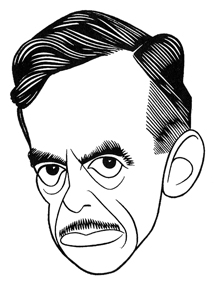Here are 10 things you should know about Teresa Wright, born 103 years ago today. She took Hollywood by storm as few have ever done, but divided her time between the large and small screens and the theatre.
Tag: Provincetown
Happy 98th Birthday, Teresa Wright!
Quintessential girl-next-door Teresa Wright was born Muriel Teresa Wright 98 years ago today in New York City. Here are 10 TW Did-You-Knows:
- Wright was born in Harlem, but her parents divorced when she was very young, after which she lived primarily in Maplewood, New Jersey.
- Wright was inspired to take up acting as a teenager when she saw Helen Hayes perform in a production of Victoria Regina.
- Having launched her professional career at the Wharf Theatre in Provincetown, Massachusetts, she started going by her middle name professionally when she learned there was already another Muriel Wright in Actors Equity.
- Her Broadway debut came in Thornton Wilder‘s Our Town; she was initially cast in a small role and as the understudy for the lead role of Emily Webb, but when the original lead, Martha Scott, answered the siren song of Hollywood, Wright took over the lead role.
- Wright’s Hollywood debut saw her starring with Bette Davis in The Little Foxes (1941). Wright remains the only actor to have been nominated for an Academy Award for her first three motion pictures: The Little Foxes (supporting actress), 1942’s The Pride of the Yankees (best actress) and Mrs. Miniver (for which she won the Oscar for Best Actress in a Supporting Role).
- Wright is one of 10 actors to have been nominated for Academy Awards in both the Best Supporting and Best Lead acting categories in the same year. The others are are Fay Bainter, Barry Fitzgerald, Jessica Lange, Sigourney Weaver, Al Pacino, Emma Thompson, Holly Hunter, Cate Blanchett, Julianne Moore and Jamie Foxx.
- Her first husband, Niven Busch, wrote the female lead in Duel in the Sun (1946) with Wright in mind, so that she might break out of her girl-next-door rut, but she discovered she was pregnant and the role went to Jennifer Jones.
- Wright was among the earliest movie actors to work on television. Her first appearance came on Robert Montgomery Presents in 1952, and she went on to appear as a guest or a star in more than fifty more series and TV movies.
- In the 1950s and ’60s, Wright also worked frequently on the stage—on Broadway, in regional theatres and in touring companies.
- Wright died of a heart attack on March 6, 2005. On July 5 of that year, during Old-Timer’s Day festivities at Yankee Stadium, her name was included in a list of former Yankees and other members of the Yankees family who had passed away in the previous twelve months because of her memorable performance as Lou Gehrig‘s wife, Eleanor, in Pride of the Yankees.
Happy birthday, Teresa Wright, wherever you may be!

Times Square Tintypes: Eugene O’Neill
In this chapter from his 1932 book, Times Square Tintypes, Broadway columnist Sidney Skolsky profiles playwright Eugene O’Neill.
THE GREAT GOD O’NEILL
EUGENE O’NEILL. He is the only Broadway playwright who was born in Times Square. He was born in the Barrett House, now the Hotel Cadillac, at Forty-third Street and Broadway. The date: October 16, 1888.
When writing he uses either pen and ink or a typewriter. It merely depends on which is handy. Revising a play annoys him.
His father was James O’Neill—an actor famous for his portrayal of the Count of Monte Cristo. His mother, a fine pianist, attended a convent with the mother of George Jean Nathan.
He’s a great swimmer and doesn’t mind cold water.
Night life doesn’t appeal to him. He made one tour of the night clubs. It was his last.
Never attends the openings of his plays. In fact he seldom goes to a theater. He’s rather read a play than see it performed.
While at Provincetown, a feeble-minded lad of six took a great liking to him. One day while sitting on the beach the boy asked: “What is beyond the Point? What is beyond the sea? What is beyond Europe?” O’Neill answered, “The horizon.” “But,” persisted the boy, “what is beyond the horizon?”
Could grow a beard in ten days if he didn’t shave.
His father, who said he never would be a great playwright, lived to see his son’s first success, Beyond the Horizon.
He hasn’t touched a drop of liquor in the last three years.
In his youth Jack London, Joseph Conrad and Rudyard Kipling were his favorite authors. Today Nietzsche is his literary idol.
He can’t walk a mile without meeting an old friend who asks for money. He gives.
After the opening of Strange Interlude he chance to meet an old seafaring friend. O’Neill asked what he was doing, and the friend replied, “Oh, I’ve married and settled down. Got a nice little business and doing pretty good. And you, Gene, are you still working the boats?”
Reads all the reviews of his plays. He claims he knows the good critics from the bad ones.
He seldom talks unless he has something to say.
While writing he hates to be disturbed. When working at Provincetown he tacked this sign outside his door: “Go to hell.”
Is crazy about prize fights and the six-day bicycle races. When in town he will go to anything at Madison Square Garden. The only person he expressed a desire to meet was Tex Rickard.
His full name is Eugene Gladstone O’Neill. Lately he discarded the middle name entirely.
Once, when a mere infant, he was very ill in Chicago. George Tyler, then his father’s manager, ran about the streets of that city at three in the morning for a doctor.
Is always making notes for future plays. He wrote the notes for his first plays in the memorandum section of that grand publication, The Bartender’s Guide.
He likes to be alone.
He had three favorite haunts. One was Jimmy the Priest’s saloon, a waterfront dive. He later made use of this locale in Anna Christie. Another was “Hell’s Hole,” a Greenwich Village restaurant. The third was the Old Garden Hotel, which was situated on the northeast corner of Madison Avenue and Twenty-seventh Street. Here he met many people of the sporting world. A former bicycle rider (now a megaphone shouter on a sightseeing bus) he met there is still a pal of his.
It took him three years to write Strange Interlude. He had only six of the nine acts completed when he sold the play to the Theatre Guild.
He is especially fond of fine linen.
When in New York he lives in a secondary hotel. A place no one would ever think of looking for him.
He has huge hands.
For every play he draws sketches suggesting designs for the sets.
Of his own work he prefers, The Hairy Ape, The Straw (this he considers the best of his naturalistic plays), Marco Millions, Strange Interlude and Lazarus Laughed. The last is to be produced next year by the Moscow Art Theatre.
He takes great delight in recounting droll stories. Tells them with feeling and skill.
While attending Professor Baker’s class at Harvard he almost ruined the college careers of John Colton and Johnny Weaver by filling them full of beer.
Is now living in France. He does not intend to return to America for some years.
His first book, Thirst and Other One-Act Plays, was published at his expense.
All of his original manuscripts are in his possession despite offers in five figures for them.
He writes important messages which are not to be breathed to a soul, on the back of a postal card.
In Shanghai, on his recent trip around the world, he was a called a faker posing as Eugene O’Neill.

